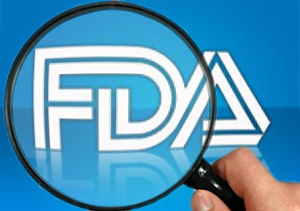
The FDA laid out plans to revamp its postmarket surveillance of medical devices, and a large part of that has to do with finalizing and implementing a long-awaited Unique Device Identifier program to better track and monitor devices.
The federal watchdog agency aims this year to finalize a UDI rule, building on a proposal released in July 2012. The rule would require most medical devices to carry labels with unique codes and scannable barcodes that will allow healthcare providers, regulators and the public at large to track the devices and monitor safety.
The UDI system will include a publicly accessible global UDI database, incorporation of UDI into electronic health records, a pilot UDI demonstration in a multi-hospital information system and a think-tank report to inform full implementation, according to a new FDA report.
The FDA’s 2012 proposed UDI rule laid out a 5-year approach to implementing the program, focusing 1st on the highest-risk devices and exempting lower-risk products from some or all of the requirements. Congress initially approved the UDI program in 2006 to enable tracking of medical implants and to add medical devices to the Sentinel post-market surveillance program that currently monitors prescription drug safety.
Current Sentinel system records "lack manufacturer or brand-specific device identifiers and therefore cannot currently be leveraged to perform meaningful medical device postmarket surveillance," the FDA said in its latest update, but the UDI system can help fix that.
"Ultimately, we envision a medical device postmarket surveillance system using distributed data sources, focusing on electronic health information containing UDI and registries linked to, or integrated with, other longitudinal data sources," according to FDA’s report, entitled "Strengthening our National System for Medical Device Postmarket Surveillance: Update and Next Steps."
In addition to initiatives like the newly released iPhone and iPad adverse event reporting app, the UDI program will provide the "foundation" for a more robust and modernized postmarket surveillance program for medical devices, an area of regulatory oversight that the FDA says "presents unique challenges compared to drugs and biologics." The agency hopes to leverage transparency, collaboration and new technologies to modernize the system.
The agency hopes to accomplish that by finalizing and implementing the UDI program, establishing a "multi-stakeholder Medical Device Postmarket Surveillance System Planning Board," fostering national and international registries for certain devices, updating adverse event reporting and analysis and revamping its data generation and analysis.

